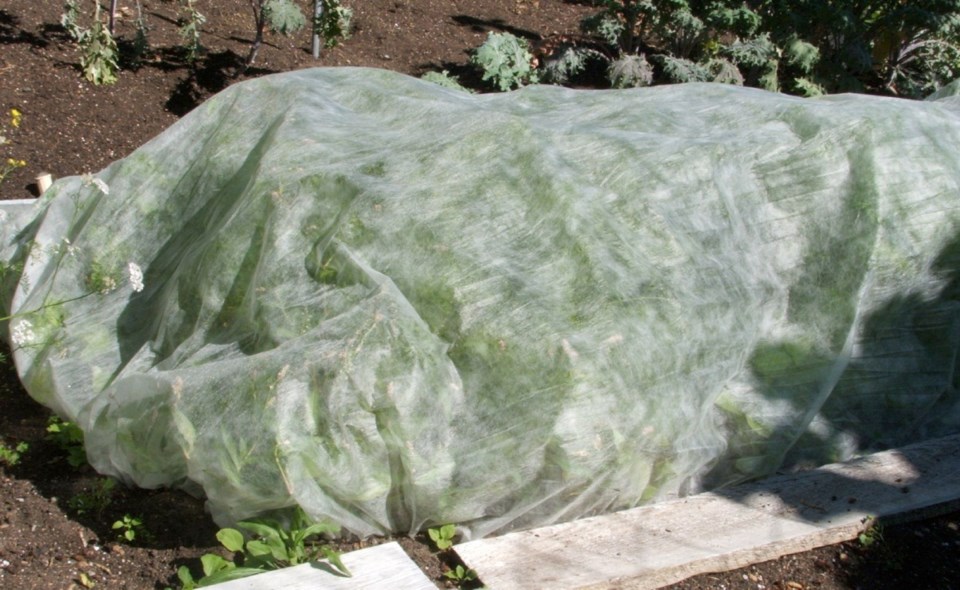Dear Helen: You have written occasionally about the carrot fly, and how to protect plantings with floating row covers or insect netting over plantings as a barrier to the flies. Did you know that sprinkling used, dried coffee grounds over the carrots every two weeks masks the carrot scent that attracts the flies? I think other scent-masking methods exist for deterring this common pest.
P.A.
Over the years I’ve heard from many readers who use scent-masking methods to stop egg laying by the carrot rust fly. Another common method is to interplant carrots with onions.
Odour-masking techniques work well where carrot fly populations are minimal. They have not worked in my current garden, while they were effective in a previous garden.
Planting carrots and onions in alternate, closely spaced rows has another limitation. The onion scent may cover the carrot aroma, but it could also attract onion flies, which act in a similar destructive fashion to the carrot fly. The adult flies of both pests lay eggs at the bases of target plants. The eggs hatch into grubs (larvae) that burrow into the carrots and onions to feed on them.
I grew bulb onions out in the open, uncovered, for 25 years before onion flies discovered the planting. The grubs turned every swelling bulb into a squishy, evil-smelling mess. I’ve covered the onions ever since.
Dear Helen: I have root weevils in my rhododendrons. I have applied nematodes, with minimal effect. What else can I do?
D.K.
Notches chewed in rhododendron leaf edges indicate the presence of adult black vine weevils, but this damage is cosmetic. More harmful to the plants are the weevil larvae feeding on the plant crowns and roots. This feeding can cause stunted, flagging growth.
The larvae over-winter in the soil and begin feeding early in the spring. They pupate in late spring, with adult weevils emerging in June and early July. The adults feed on leaf edges at night for around two weeks before laying eggs in the soil. The emerging larvae burrow into plant roots to feed, and remain in the soil until spring.
According to entomologist Linda Gilkeson, my source of knowledge and wisdom on all things buggy, notes that the best time to apply nematodes is in late summer, when the soil is sure to be warm and larvae are sure to be present and actively feeding. Parasitic nematodes sold as a biological control for black vine weevil are tiny worms that feed on the root weevil larvae.
Other methods for controlling the pest include spreading a ground sheet under a plant at night and shaking the shrub vigorously to dislodge adult weevils feeding on the leaves. Dispose of collected weevils in soapy water. Watch for fresh notching in the leaves over the next six weeks, as new adults emerge. This will be the best time for collecting and trapping adults.
Adult weevils hide during the day in the soil and under debris. They will seek cover underneath short pieces of board or sheets of corrugated cardboard. Set these out, and collect and destroy the small, dark weevils every morning. They are easily recognizable by their protruding snouts.
As with the ground sheet collecting, the most effective timing for trapping is the end of May to mid-July.
GARDEN EVENTS
Crafting cards for a cause. Cards for a Cause on Saturday, June 8, 1 to 4:30 p.m. in the Farmers’ Institute Hall in Cobble Hill raises funds to create a garden around Cowichan Hospice House in 2020. The garden will include tranquil spaces for individual and family use and wide paths to accommodate wheelchairs and beds. Participants in the card-making workshop will take home four handmade cards. There will be helpers at each table and refreshments. School age children are welcome with a parent or grandparent. Tickets, $25, at 250-743-3131 or 250-743-9465 or online at Eventbrite.com.
Government House plant sales. Government House, 1401 Rockland Ave., has plant sales every Tuesday, Thursday, 9 a.m. to 12 p.m., until June 27, at the Plant Nursery opposite the Tea Room.



